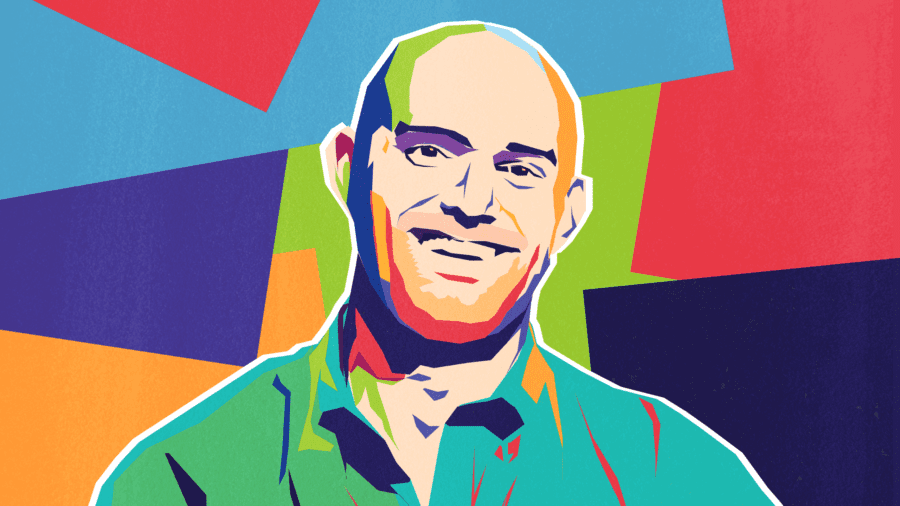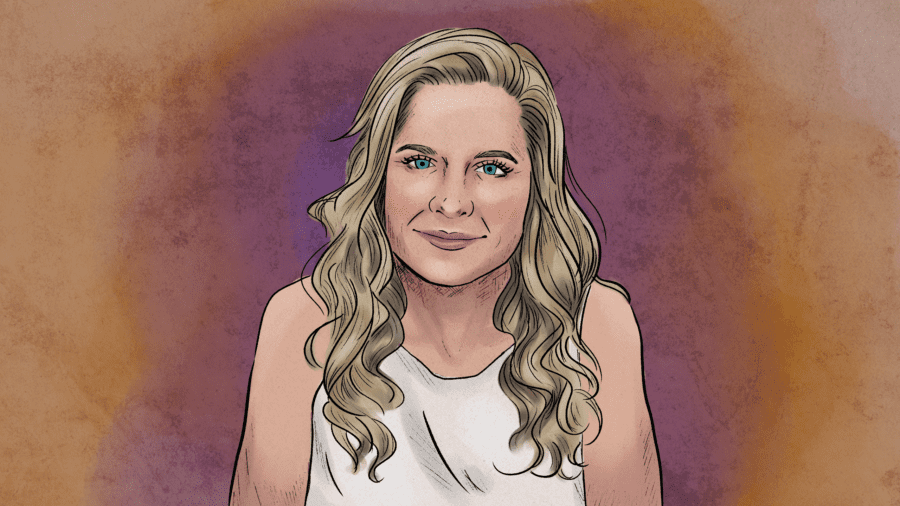
11 Eye-Opening Questions to Ask Yourself If You Struggle with Limiting Beliefs About Money
Do you struggle with limiting beliefs around money?
Your beliefs and money mindset are crucial when it comes to growing your personal wealth and enhancing your ability to manage money. Too many people are unaware that they harbor unhealthy and limiting beliefs about money that keep them from reaching their full potential.
So what is a money mindset, exactly?
Your money mindset is your set of beliefs and priorities regarding money and your personal finances. There are two primary money mindsets that impact your ability to handle and grow your personal wealth: scarcity and abundance.
An abundant money mindset refers to the belief that money is plentiful and there’s enough of it to go around. Those with an abundant money mindset view their financial goals as attainable, and they view money as a plentiful resource rather than something to compete over.
Those with a scarcity money mindset struggle with fear around money and believe it’s a finite resource. Rather than being open to sharing wealth, they’re more likely to hoard it, and they struggle with limiting beliefs that keep them from maximizing their personal finances.
If you struggle with a scarcity money mindset and limiting beliefs around money, you’re far from alone. Fortunately, you can use these 11 questions to help you overcome these limiting beliefs so that you can shift to having an abundance mindset that attracts more wealth and joy.
#1. Do I Believe That It’s Hard to Earn Money?
There are many common limiting beliefs about money that people struggle with, and perhaps one of the most prevalent beliefs is that it’s challenging to make money.
The sad reality is that those with this mentality frequently create a self-fulfilling prophecy around their personal finances — their limiting beliefs about their wealth keep them from earning their full potential.
Rather than viewing money as hard to come by, consider shifting your beliefs to view it as plentiful and attainable.
The first step toward attaining wealth is getting a better handle on your finances. You can start by building a budget around your earnings and expenses so that you can save money each month regardless of how much you make.
Expert money management is a crucial part of building your wealth, and you can enhance your ability to manage your money by improving your financial literacy.
If you need help learning more about money management, accumulating wealth through smart investing, and building wealth through passive income, consider using online resources such as Forbes, Investopedia, and other articles on Greatness.com.
#2. What Was My Upbringing Around Money?
Often, our money mindsets are not entirely in our control because our beliefs around money begin to form at a young age.
Your parents’ or guardians’ financial situations may have shaped your views around money, and the way adults in your life discussed money likely impacted your money mindset significantly.
How did people in your life discuss money when you were young? Was talking about money a complete taboo, or did people discuss finances openly? Did your parents view money as positive or negative?
Take a moment to consider some of your earliest memories that involved money because they likely shaped your beliefs.
These early-formed beliefs around money often create relationship issues. If your partner grew up in a household where money was plentiful or scarce, they might have a completely different money mindset and spending habits. For that reason, it’s critically important that you learn how to talk about money with your partner.
Some of your earliest work experiences also likely influenced your view of money. For example, if you struggled to make ends meet while working a low-paying job, you may have developed a scarcity money mindset that revolves around fear rather than abundance.
Fortunately, you are NOT stuck with these beliefs. You are fully capable of rewriting your beliefs around money so that you can manifest wealth and live with less stress around your finances.
#3. Do I Have Positive Financial Habits?
Developing constructive habits is key to overcoming tough financial situations while also developing an abundant money mindset. As discussed above, implementing a budgeting system can help you accumulate more wealth, and a budget will also give you critical insights into your spending habits that could be holding you back.
For example, you could be struggling to save money or invest because of the amount you spend on eating out. Although there’s nothing wrong with treating yourself to a fancy dinner or a tasty fast-food treat, expenses associated with eating out can add up fast. You may be completely unaware of how much you spend on these luxuries if you don’t have a good handle on your budget.
This is just one example of the many ways in which we may overspend that results in personal finance struggles. Once you learn where your money goes each month, you can shift your financial habits to make wiser decisions that help you build your financial empire.
#4. Do I Express Gratitude Toward My Money?
Overspending is not the only bad habit keeping you from maximizing your wealth — negative thoughts revolving around your personal finances can impact your ability to attract money.
It’s easy to get into the habit of thinking about money as a source of stress, especially when struggling with limiting beliefs and a scarcity money mindset.
The next time you have negative thoughts revolving around your financial situation, try to shift toward a mindset of gratitude. This can be tricky if you’re struggling to make ends meet, but it’s important to remember that your money provides you with essentials and luxuries.
You can feel appreciation toward your money and your ability to make money by consciously practicing gratitude daily. You can also be grateful for your health and life.
Sometimes, expressing daily gratitude can be challenging at first, so consider journaling about what you’re thankful for and how your money has enabled you to live with more joy and vigor.
#5. What Fears Do I Have Around Money?
Those with limiting beliefs and scarcity money mindsets often have specific financial fears.
Perhaps you’re afraid of slipping further into debt or declaring bankruptcy. If you have a family, you may be concerned that you won’t be able to provide for them or yourself.
Checking in and understanding your fears around money can help you overcome them. Consider journaling out your worries and examining their validity.
For example, are you actually struggling with overwhelming debt, or are you afraid of eventually slipping into debt?
Examining your fears around your finances will help you gain a better understanding of your money mindset, and if there’s any truth to your fears, such as struggling with increasing debts, you can formulate a plan to overcome your struggles and live with more abundance.
Join In 200 Million+ On The Journey to Greatness
#6. Am I a Spender or a Saver?
Once you get a handle on your budget, you’ll likely gain a clear perspective on your spending and saving habits.
Although it may be tempting to view saving money as inherently better than spending it, saving too much is often indicative of a scarcity money mindset. If you live in fear of not having enough money, you may be inclined to hoard it and deny yourself or your loved ones affordable luxuries or even necessities.
For example, do you save a great deal of money each month but refuse to spend much on dates with your significant other? This likely indicates that you have a great deal of insecurity around your personal finances.
At the same time, spending too much money can prohibit you from saving and accumulating wealth.
Rather than being a heavy spender or saver, it’s better to strike a balance between the two. When budgeting each month, allow yourself to include things that bring you joy that are not necessities. This could consist of eating out, buying unnecessary clothes or items, or spending money on fun experiences that bring more pleasure into your life.
#7. Do I Have Confidence in My Ability to Make Money?
A common problem holding people back from earning their full money-making potential is a lack of confidence. You need to believe in yourself and your ability to make money because you’re the only person in control of changing your financial situation.
If you want to make more money, it’s time to get to work strategizing and educating yourself on how to earn more.
You also need to believe in your ability to overcome financial challenges. If you’re struggling with debt or paying for necessities, you need to have faith in yourself and your power to defeat any obstacle that’s keeping you from living the financial life you want.
Remember, YOU are capable of reaching your financial goals, and you need to get started today.
Take a moment to consider what you need to do right now to get on the right track toward your financial goals. Perhaps that means improving your budget, growing your financial literacy, or listening to financial experts who can help you enhance your money management abilities.
#8. Do I Believe That I Deserve More Money?
Often, our limiting beliefs around money are rooted in issues regarding self-esteem. You may feel as if you don’t deserve more money because you haven’t earned it, but that’s simply not true.
Regardless of your financial or career decisions so far in life, you deserve to make more money. You can grow in your ability to manage money and make wise decisions to increase your wealth and income.
It’s also critical to remember that there’s nothing wrong with wanting to make more money, and you can still be grateful for what you have while also desiring to improve your financial situation. Allow yourself to strive to become financially free and accept that there’s nothing wrong or selfish about wanting more.
#9. Do I Believe That Wealth is Evil?
We’ve all heard the phrase, “Money is the root of all evil,” and although there’s value in abstaining from greed, people often take this sentiment too far and believe that having money is inherently bad.
In reality, money is a tool, and you can do great things with your wealth to benefit others.
Another common narrative is that money corrupts and causes people to lose sight of their values, but this is also false — your values don’t change with wealth accumulation. If you’re an altruistic person, you’ll likely be incredibly charitable with your money as you grow in your wealth.
If you accumulate wealth while maintaining a scarcity mindset, you’re more likely to engage in toxic behaviors with your money. Your fear and anxiety revolving around money can keep you from recognizing the importance of giving, and your wealth will likely not bring you joy.
#10. What Value Does Money Bring Into My Life?
Once you accept that money is not inherently good or bad, you can focus on what value money can bring into your life. Perhaps you want wealth to provide more financial security for your loved ones, or maybe you want money to travel and have life-changing experiences.
When you take a moment to think about your values and how money can enable you to live with more joy and satisfaction, you can begin to shift your money mindset. Rather than harboring fear, negativity, and anxiety around money, you can focus on how accumulating more wealth will change your life for the better.
Perhaps when you gain more wealth, you’ll be able to spend more time with your loved ones or have the ability to make a greater charitable impact. Regardless of your values, you can use your wealth to improve your life and the lives of others.
#11. What Beliefs About Money No Longer Serve Me?
If you’ve lived a life with negative beliefs around money, you’ll likely find that these views are holding you back. It’s time to step outside of your limiting scarcity money mindset into one of positivity and abundance.
You can begin to rewire your mindset and beliefs by adopting daily mindset affirmations and by consciously practicing positivity and gratitude.
Additionally, you can shift how you think about your financial situation in relation to other people. Comparing yourself to others is unhelpful, and rather than allowing another person’s success to make you feel jealous, you can choose to let it inspire you.
Financial competitiveness is rooted in limiting beliefs about money and a scarcity mindset, so instead of feeling negative about yourself because of someone else’s wealth, choose to improve your financial situation while celebrating others’ success.
Learn More About Adopting a Positive Money Mindset
Your money mindset directly impacts your ability to grow your wealth, and it plays a major role in determining the joy and gratitude you derive from your finances.
In order to grow your wealth and allow it to bring more value into your life, you need to adopt an abundant mindset. You can get started with these 11 critical questions, and you can learn more about overcoming your limiting beliefs by reading other articles on Greatness.com!
Adopting constructive beliefs and growing your personal finances can seem daunting, but YOU are fully capable of building your wealth while optimizing your money mindset.
Greatness Authors
Greatness Authors is a collection of writers, thinkers, curiosity experts, and students of the world who are committed to bringing you the most up-to-date, impactful, and inspiring information surrounding Greatness topics.

Redefining Poetry: How Instagram Sensation Rupi Kaur Showed That Poetry Is for Everyone

The 7 Best Vitamins to Naturally Promote Better, Uninterrupted Sleep According to Shawn Stevenson

The Science of Forming Healthy Habits & Letting Go of Bad Ones, According to Author James Clear

9 Signs You Have Imposter Syndrome at Work and How to Overcome Performance Insecurity

Olympian Yusra Mardini’s Incredible Story of Resilience, Rescue, and Refugee Rights










